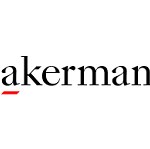The answers below take into consideration the laws in all of Canada, except for the Province of Quebec. The Province of Quebec is a civil law jurisdiction, while the rest of Canada is based on common law principles. The writers of this article recommend seeking advice from lawyers and accountants in the Province of Quebec in relation to the rules and requirements for the sale and operation of franchised businesses in Quebec.
-
Is there a legal definition of a franchise and, if so, what is it?
In Canada, franchise law differs from province to province. The provinces of British Columbia, Alberta, Manitoba, Ontario, New Brunswick and Prince Edward Island each have franchise legislation applicable within those provinces (collectively, the “Franchise Legislation Provinces”), each with slightly different obligations and requirements. Currently, the other provinces and territories in Canada do not have franchise legislation and therefore, do not have laws that are specific to franchised businesses or any requirements for providing disclosure to prospective franchisees. The Province of Saskatchewan is in the process of enacting a franchises act and as at the date of writing, The Franchise Disclosure Act of Saskatchewan is expected to come into force in late 2025 or early 2026.
In the Franchise Legislation Provinces, each statute contains a legal definition of “franchise” that, while not identical, follow a common theme that is intended to capture any businesses that bear the hallmarks of a franchise, whether or not the business and system are specifically set up with the intention of being a franchised business.
Alberta:
Pursuant to the Alberta Franchises Act, a “franchise” is “a right to engage in a business:
- in which goods or services are sold or offered for sale or are distributed under a marketing or business plan prescribed substantially by the franchisor or its associate;
- that is substantially associated with a trademark, service mark, trade name, logotype, or advertising of the franchisor or its associate or designating the franchisor or its associate; and
- that involves:
- a continuing financial obligation to the franchisor or its associate and significant continuing operational controls by the franchisor or its associate on the operation of the business; or
- the payment of a franchise fee,
and includes a master franchise and a subfranchise;”.1
Ontario:
The Arthur Wishart Act (Franchise Disclosure), 2000, S.O. 2000, c. 3 defines a franchise as “a right to engage in a business where the franchisee is required by contract or otherwise to make a payment or continuing payments, whether direct or indirect, or a commitment to make such payment or payments, to the franchisor, or the franchisor’s associate, in the course of operating the business or as a condition of acquiring the franchise or commencing operations and,
- in which:
- the franchisor grants the franchisee the right to sell, offer for sale or distribute goods or services that are substantially associated with a trade-mark, trade name, logo or advertising or other commercial symbol that is owned by or licensed to the franchisor or the franchisor’s associate, and
- the franchisor or the franchisor’s associate has the right to exercise or exercises significant control over, or has the right to provide or provides significant assistance in, the franchisee’s method of operation, including building design and furnishings, locations, business organization, marketing techniques or training, or
- in which,
- the franchisor, or the franchisor’s associate, grants the franchisee the representational or distribution rights, whether or not a trade-mark, trade name, logo or advertising or other commercial symbol is involved, to sell, offer for sale or distribute goods or services supplied by the franchisor or a supplier designated by the franchisor, and
- the franchisor, or the franchisor’s associate, or a third person designated by the franchisor, provides location assistance, including securing retail outlets or accounts for the goods or services to be sold, offered for sale or distributed or securing locations or sites for vending machines, display racks or other product sales displays used by the franchisee; (“franchise”)”.2
Other Franchise Legislation Provinces:
The definitions of a franchise in the other Franchise Legislation Provinces generally follow the definitions set out in Ontario. Although the core elements are consistent, franchise legislation in each of the applicable provinces introduces nuances that can have practical consequences.
Footnote(s):
1 Franchises Act, RSA 2000, c F-23 (the “Alberta Franchises Act”), s 1(1)(d)
2 Arthur Wishart Act (Franchise Disclosure), 2000, S.O. 2000, c. 3 (the “Arthur Wishart Act”), s 1(1)
-
Are there any requirements that must be met prior to the offer and/or sale of a franchise? If so, please describe and include any potential consequences for failing to comply.
There are no specific legislative requirements that must be met prior to the offer of a franchise for sale, and often parties will discuss general matters relating to the requirements of the franchise system and the qualifications of the prospective franchisee before proceeding with the formal disclosure process. In the Franchise Legislation Provinces, a franchisor must be mindful not to make any promises or earning claims that are not in accordance with the applicable franchise legislation and that are not consistent with what is included in the disclosure document, once provided. However, prior to the sale of a franchise in the Franchise Legislation Provinces, specific disclosure requirements must be met. Disclosure requirements and the potential significant consequences of failing to meet those requirements are further explained in question 4 below.
-
Are there any registration requirements for franchisors and/or franchisees? If so, please describe them and include any potential consequences for failing to comply. Is there an obligation to update existing registrations? If so, please describe.
There are no franchise-related or disclosure-related registration requirements for franchisors and/or franchisees in Canada.
However, franchisors and franchisees must comply with any corporate and other general business laws that apply to them. For example, a franchisee who wishes to operate as a corporation must be duly incorporated and properly registered as a corporation in the province in which the franchisee wishes to do business.
In the event a franchisor is a corporation that was incorporated or organized outside of Canada, federally incorporated under the Canadian Business Corporations Act,3 or incorporated in one Canadian province, the franchisor must also extra-provincially register in all provinces in which the franchisor will carry on business. Pursuant to business corporations acts in different provinces across Canada, extra-provincial corporations must register within a certain period after having commenced carrying on business in that province.4 Failing to register extra-provincially can be an offence and attract fines in some provinces. For example, British Columbia may impose a daily fine of $100.00 until a corporation registers as carrying on business extra-provincially.5
The definition of “carrying on business” in each province is broad and it is generally advisable for franchisors to register in every province in which their franchisees will operate. A franchisor with employees or an office in a given province is likely to be seen as carrying on business in that province. However, it is less clear if a franchisor with its only connection to a province being that it has franchisees operating in that province under the franchisor’s trademarks is, in and of itself, enough to be viewed as carrying on business in that province. A franchisor that is either federally incorporated in Canada or in a different province in Canada may not be required to extra-provincially register in Ontario, if it falls within the exceptions in the Ontario Extra-Provincial Corporations Act.6
Franchisees may also be required to obtain certain permits and business licenses to construct and operate the franchised business.
Footnote(s):
3 Canada Business Corporations Act, RSC 1985, c C-44
4 For example, Business Corporations Act, SBC 2002, c 57, s 375(1), 426(1)(b), Business Corporations Act, RSA 2000, c B-9, s 279(1)
5 Business Corporations Act, SBC 2002, c 57, s. 428(3), Business Corporations Regulation, BC Reg 65/2004, s. 35
6 Extra-Provincial Corporations Act, RSO 1990, c E.27, s. 4(1)
-
Are there any disclosure requirements (franchise specific or in general)? If so, please describe them (i.e. when and how must disclosure be made, is there a prescribed format, must it be in the local language, do they apply to sales to sub-franchisees) and include any potential consequences for failing to comply. Is there an obligation to update and/or repeat disclosure (for example in the event that the parties enter into an amendment to the franchise agreement or on renewal)?
All of the Franchise Legislation Provinces, have specific disclosure requirements prior to the sale of a franchise. At minimum, a franchisor must provide a prospective franchisee with a franchise disclosure document (“FDD”) at least 14 days before the earlier of: (a) the signing of any agreement; and (b) the payment of any consideration. Certain limited exceptions exist, such as in relation to agreements regarding confidentiality and the prospective franchisee’s use of the franchisor’s information, business locations for prospective franchisees, and fully refundable deposits (which are capped). Exceptions must be carefully considered, having careful regard to the specific and often different requirements of each jurisdiction. Generally, disclosure rules apply both to franchisors in relation to franchisees and sub-franchisors in relation to sub-franchisees.
There is no set format that the FDD must be prepared in, but, at a minimum, the FDD must contain all of the information prescribed by the applicable province’s franchise legislation and regulations. This typically includes:
- Financial statements of the franchisor (subject to some exceptions);
- Copies of all agreements relating to the franchise that the prospective franchisee will be required to sign;
- Information about the specific location that is being sold to the franchisee, such as any information relating to the premises, the lease agreement, and any history relating to that location;
- Breakdown of estimated startup costs and ongoing payments;
- List of franchisees (both current and former), along with the franchisees’ contact information and location for the prospective franchisee to contact, should they wish;
- Background of the business and individuals running the franchisor; and
- Franchisor’s certificate, dated and signed by the franchisor’s officer or director certifying no false information is included in the FDD, that all material facts are included in the FDD, and that other information required by a province’s franchise legislation is included. Where a franchisor has more than one director or officer, at least two officers and/or directors must sign the certificate.
The FDD must also include all material facts, which include any information about the franchised business, the franchisor and its associates, control, operations, and franchise system that would be reasonably expected to have a significant effect on the value of the franchise to be purchased or the decision by the franchisee to acquire the franchise. The FDD should be kept up to date at all times. Most franchisors update the FDD at least once a year, at the same time each year, but if there are any material changes throughout the year, these changes should be incorporated into the FDD without delay.
The franchise legislation in the Franchise Legislation Provinces does not mandate an FDD to be prepared in any specific language(s). However, some legislation requires the FDD be not only accurate, but also clear and concise.7 Preparing an FDD that is not in the language of a prospective franchisee may expose a franchisor to the risk of breaching the “clear and concise” requirement. See the answer in question 28 below for further information.
In some of the Franchise Legislation Provinces, there is a requirement that all information required to be in the FDD be contained in one single document.8 Generally, it is best practice for franchisors to include all required information into a single FDD, regardless of the province, and not to provide information separately.
If a prospective franchisee has been provided with a FDD and a material change occurs prior to the franchise agreements being signed, the franchisor must advise the prospective franchisee of such material change by formal statement. A “material change” is, generally, any change that would reasonably be expected to have a significant adverse effect on the value or price of the franchise to be granted or on the decision to acquire the franchise. All Franchise Legislation Provinces require this disclosure as soon as is practical after the change has occurred and before the prospective franchisee signs any agreement or pays any consideration.9
In general there is no obligation to provide continuing disclosure to existing franchisees, but there is an obligation to provide disclosure before entering into a renewal or extension of an existing franchise agreement. However, in relation to renewals and extensions, all of the statutes in the Franchise Legislation Provinces provide some form of an exception from having to deliver a new FDD where the franchisor is granting a renewal or extension of an existing franchise agreement, which exceptions are different but almost all include the requirement that there has been no interruption in the operation of the business and there has been no material change since the franchise agreement was entered into.10 A “material change” in relation to these exceptions has the same definition as set out above, which is broad and would apply to any changes to the franchise agreement, the franchise system in general or the franchisor and its associates. If the conditions set out in the exception are not fully and clearly met, then the exemption does not apply and the franchisor must provide a new FDD that applies specifically to the renewal agreement to avoid the potential consequences. Generally speaking, the exceptions to legislated disclosure requirements are strictly construed against franchisors by courts in Canada.11 As such, franchisors should be cautious when seeking the benefit of such exceptions and in practice, this means that in most cases it is recommended that franchisors provide a new FDD prior to entering into a renewal agreement with an existing franchisee.
In the Franchise Legislation Provinces failure to satisfy legislated disclosure requirements can result in a franchisee having a right to rescind (cancel) the franchise agreement and all related agreements (meaning that none of the provisions of the agreements, including, without limitation, any non-competition provisions, will apply to the franchisee going forward, although common law confidentiality obligations will continue to apply) and to claim damages against the franchisor. The right to rescind the franchise agreements must be exercised by a franchisee, in cases of late disclosure, no later than 60 days after receiving a FDD, or in cases of no disclosure, no later than 2 years after the franchisee is granted the franchise.12 It is important to note that the timing of when a franchise is granted is not clearly established at law in Canada. In most cases, it is likely upon the signing of the franchise agreement. The legislation in some of the Franchise Legislation Provinces provides the date of signing of the franchise agreement as the commencement date for the two-year rescission period, but others do not. Franchisors should use precise language in their franchise agreement to make clear when the franchise is granted (such as upon the signing of the agreement or the opening of a location).
Written notice of rescission must be given by the franchisee to the franchisor, and the method of calculating damages for rescission varies in the Franchise Legislation Provinces. For instance, in Alberta, the effect of rescission is that the franchisor must compensate the franchisee for any net losses that the franchisee incurred in acquiring, setting up and operating the franchised business.13 In Ontario, the legislation is more specific and sets out that the franchisor must:
- refund to the franchisee any money received from or on behalf of the franchisee, other than money for inventory, supplies or equipment;
- purchase from the franchisee any inventory that the franchisee had purchased pursuant to the franchise agreement and remaining at the effective date of rescission, at a price equal to the purchase price paid by the franchisee;
- purchase from the franchisee any supplies and equipment that the franchisee had purchased pursuant to the franchise agreement, at a price equal to the purchase price paid by the franchisee; and
- compensate the franchisee for any losses that the franchisee incurred in acquiring, setting up and operating the franchise, less the amounts set out in clauses (a) to (c).14
Regardless of jurisdiction, the consequences for failing to meet legislated disclosure requirements are significant and costly. Importantly, the law of recission does not consider the business acumen of the franchisee. As a result, a franchisee who receives improper disclosure but is an ineffective operator (for example, who accumulates significant debt or losses in the operation of the franchise) may still be entitled to rescission and entitled to damages for its losses.
Franchisors must also be aware that Canadian courts have held that a deficient FDD may be deemed to be a failure to disclose entirely. Such fatal deficiencies in a FDD can include the failure to properly sign the franchisor’s certificate and the failure to provide the required financial statements.
Franchisors in Canada, and any individuals signing the FDD certificates and/or participating in the grant of franchises, must be careful in preparing the FDD and ensuring it is accurate as the consequences for flawed FDDs can be significant, both for the franchisor and the individual signor.
Footnote(s):
7 Arthur Wishart Act, s. 5.
8 Arthur Wishart Act, s. 5(3); B.C. Franchises Act, s. 5(3); Franchises Act, RSNB 2014, c 111 (the “N.B. Franchises Act”), s. 5(3); Franchises Act, R.S.P.E.I. 1988, c. F-14.1 (the “P.E.I. Franchises Act”), s. 5(3).
9 Arthur Wishart Act, s. 5(5), Alberta Franchises Act, s. 5(5), The Franchises Act, C.C.S.M. c. F156, (the “Manitoba Franchises Act”), s. 5(7), 5(8), P.E.I. Franchises Act, s. 5, B.C. Franchises Act, s. 5(6)
10 Arthur Wishart Act s. 5(7)(f); Alberta Franchises Act, s. 5(7)(f); B.C. Franchises Act, s. 5(7)(f); Manitoba Franchises Act s. 5(9)(f); N.B. Franchises Act s. 5(9)(f); P.E.I. Franchises Act s. 5(7)(f); Saskatchewan Franchise Disclosure Act, s. 5(7)(f) (not yet in force)
11 2189205 Ontario Inc. v. Springdale Pizza Depot Ltd., 2011 ONCA 467
12 Alberta Franchises Act, s. 13; Arthur Wishart Act, s. 6; B.C. Franchises Act, s. 6; Manitoba Franchises Act, s. 6; N.B. Franchises Act, s. 6; P.E.I. Franchises Act, s. 6
13 Alberta Franchises Act, s. 13(2)
14 Arthur Wishart Act, s. 6(6)
-
If the franchisee intends to use a special purpose vehicle (SPV) to operate each franchised outlet, is it sufficient to make disclosure to the SPVs’ parent company or must disclosure be made to each individual SPV franchisee?
In general, the legislation in the Franchise Legislation Provinces require a franchisor to provide an FDD to every prospective franchisee, which would include every SPV, and given that the Canadian courts are more and more finding the importance of a FDD including all location specific information, it is recommended that a franchisor provide a location specific FDD to each SPV. There is a possibility that in a specific situation a legislated exception to providing a FDD may apply and it may be possible to disclose to only the SPV’s parent company if the situation meets all of the requirements of the applicable exception. However, as noted above, Canadian courts have interpreted disclosure exemptions narrowly against franchisors and the best practice is to disclose to each SPV.
-
What actions can a franchisee take in the event of mis-selling by the franchisor? Would these still be available if there was a disclaimer in the franchise agreement, disclosure document or sales material?
In the Franchise Legislation Provinces, where a franchisee suffers a loss due to a misrepresentation contained in the FDD, the franchisee has a right of action for damages.15 In addition to a statutory claim for misrepresentation, a franchisee may also have a right of action for damages for misrepresentation under the common law, provided the misrepresentation in the FDD was material and reasonably relied on by the franchisee.c6
Where specific disclosure is mandated by legislation, a franchisor cannot avoid their disclosure obligation by providing a blanket disclaimer as to the accuracy of required representation. However, in most cases, if a franchisor can prove that the franchisee acquired the franchise with knowledge of the misrepresentation, then the franchisor will not be liable for the misrepresentation.17 Where misrepresentations relate to matters not subject to legislative disclosure requirements, the common law principles of misrepresentation will govern. The franchisee will have to prove that the franchisor knew the statement was false or was reckless as to its truth, that the representation was made with knowledge that it would be materially relied on by the franchisee, and that it was reasonable for the franchisee to rely on representation.18 In cases where a disclaimer has been provided, establishing that the franchisee reasonably relied on the representation may be challenging to prove.
Footnote(s):
15 Alberta Franchises Act, s. 9; Arthur Wishart Act s. 7; B.C. Franchises Act, s. 7; Manitoba Franchises Act, s. 7, N.B. Franchises Act, s. 7; P.E.I. Franchises Act, s. 7.
16 Queen v Cognos Inc., [1993] 1 SCR 87 at para 33.
17 Alberta Franchises Act, s. 10; Arthur Wishart Act, s. 7(4); B.C. Franchises Act, s. 8; Manitoba Franchises Act, s. 7(4); N.B. Franchises Act, s .7(4); P.E.I. Franchises Act, s. 7(4)
18 National Bank of Canada v Pahuja, 2024 ONSC 736 at para 23.
-
Would it be legal to issue a franchise agreement on a non-negotiable, “take it or leave it”, basis?
Yes, it is legal in Canada for a franchisor to issue a franchise agreement on a non-negotiable basis. This is not an uncommon practice in Canada. Ultimately, it is a prospective franchisee’s prerogative to enter into the franchise agreement or not. Provided that the disclosure process was properly completed, there is no special protection for a franchisee on the basis that they could not negotiate different terms.
-
How are trademarks, know-how, trade secrets and copyright protected in your country?
Trademarks are protected primarily under the federal Trademarks Act, R.S.C. 1985, c. T-13. A trademark may be registered with the Canadian Intellectual Property Office (“CIPO”), which provides the owner with exclusive rights to use the mark across Canada in association with the goods or services listed in the registration. Registration is not strictly required and common law rights can arise through use, but registration offers significant procedural and evidentiary advantages, including nationwide protection, presumptions of ownership, and access to statutory infringement remedies. The scope of protection extends to identical and confusingly similar marks.19
Copyright is governed by the federal Copyright Act, R.S.C. 1985, c. C-42. Copyright subsists automatically upon the creation of an original literary, dramatic, musical, or artistic work, provided there is a sufficient connection to Canada or another treaty country. Registration with CIPO is not required for protection but provides evidentiary advantages. Copyright gives the owner the sole right to reproduce, perform, publish, or otherwise exploit the work, subject to statutory exceptions such as fair dealing. Infringement occurs when a substantial part of the work is reproduced or otherwise exploited without permission.20
In Canada, trade secrets and know-how are generally protected through the franchise agreement, often via confidentiality, non-disclosure, and non-use provisions. Unlike trademarks or copyright, trade secrets and know-how cannot be “registered” and have no statutory monopoly. The key to legal protection is the imposition of an obligation of confidence on the recipient, either expressly in writing or implied from the circumstances. Breach of such an obligation can give rise to remedies in contract and, in certain cases, in equity for breach of confidence.
Footnote(s):
19 Trademarks Act, R.S.C. 1985, c. T-13
20 Copyright Act, R.S.C. 1985, c. C-42
-
Are there any franchise specific laws governing the ongoing relationship between franchisor and franchisee? If so, please describe them, including any terms that are required to be included within the franchise agreement.
In all franchise regulated provinces in Canada, franchise disclosure legislation imposes a statutory duty of fair dealing on both franchisors and franchisees.21 The statutory duty of fair dealing codifies the common law duty of good faith in contractual performance.22 The scope of the duty of fair dealing may vary depending on the circumstances but is generally quite broad.
It is well established that parties to franchise agreements cannot lie or knowingly mislead one another,23 and when exercising discretion afforded to them under a franchise agreement, they must do so honestly and even handedly.24 For example, in the 2024 Ontario Court of Appeal case of Spina v Shoppers Drug Mart Inc., the franchisor was found to have breached their duties of fair dealing and honest performance by arbitrarily and unilaterally excluding certain types of profit from what they deemed to be general revenue in contravention with the profit sharing terms of their franchise agreement.25
Footnote(s):
21 Alberta Franchises Act, s. 7.
22 Avante Automobile (2017) Corporation v BMW Canada Inc., 2025 ONSC 87 at para 59 citing Trillium Motor World Ltd. v General Motors of Canada Limited, 2025 ONSC 3824.
23 Spina v Shoppers Drug Mart Inc., 2024 ONCA 642 at para 175.
24 Spina v Shoppers Drug Mart Inc., 2024 ONCA 642 at para 177.
25 Spina v Shoppers Drug Mart Inc., 2024 ONCA 642 at para 184.
-
Are there any aspects of competition law that apply to the franchise transaction (i.e. is it permissible to prohibit online sales, insist on exclusive supply or fix retail prices)? If applicable, provide an overview of the relevant competition laws.
The application of competition law to franchise transactions in Canada is principally governed by the federal Competition Act, RSC 1985, c C-34. The Competition Act applies to restraints between franchisors and franchisees, including restrictions on sales channels, supply obligations, and pricing arrangements. The Competition Act, particularly s. 45, addresses agreements that prevent or lessen competition substantially. The Competition Bureau’s guidelines suggest that any restraint must be directly related to and reasonably necessary for achieving the objectives of the broader agreement.26 The prohibition of online sales in franchise agreements can be scrutinized under competition law as a potential restraint on trade as such prohibitions may limit the ability of franchisees to reach a broader market, thereby reducing competition. In the context of online sales, a franchisor must demonstrate that the prohibition is essential to maintain brand integrity or other legitimate business interests, and that no less restrictive means are available.
Exclusive supply agreements, where a franchisee is required to purchase goods solely from the franchisor or designated suppliers, are common in franchise systems. These agreements may be challenged as exclusive dealing or tied selling if they are likely to substantially lessen competition.27 The ancillary restraints defence under s. 45(4) of the Competition Act may apply if the exclusive supply requirement is ancillary to a broader agreement and is necessary to achieve its objectives. The Competition Bureau’s guidelines emphasize that the restraint must not be broader than necessary, and the parties must consider whether less restrictive alternatives were available at the time of the agreement.
Price-fixing is a quasi-illegal activity under competition law, and franchise agreements that fix retail prices can attract significant scrutiny. Section 45(1) of the Competition Act criminalizes agreements to fix, maintain, increase, or control prices. The Competition Bureau’s guidelines indicate that price-fixing agreements undermine competition and efficient resource allocation. However, the ancillary restraints defence may be available if the price-fixing is a minor part of a larger agreement and is necessary for its implementation. Franchisors must ensure that any pricing policies are justifiable under this defence and do not exceed what is necessary to achieve legitimate business objectives.
Amendments made effective June 23, 2023 to the Competition Act made it a criminal offense for two unaffiliated parties to conspire, agree or arrange: (a) to fix, maintain, decreased or control salaries, wages or terms and conditions of employment; or (b) to not solicit or hire each other’s employees. These amendments apply retroactively, and apply to franchise agreements (and franchisor’s operations manuals). Based on these amendments, it is recommended that franchisors do not attempt to prohibit franchisees from hiring the employees of other franchisees or the franchisor, and franchisors should carefully consider and attempt to remove or limit any requirements in their franchise agreements or operating manuals that attempt to control, fix, maintain, decreased or control salaries, wages or terms and conditions of employment of the franchisee’s employees. If a franchisor requires these types of restrictions in its system standards, the franchisor would need to be able to show that the restraints are directly related to and reasonably necessary for achieving the objective of the franchise agreement and the success of the franchise system, and any such restrictions are recommended to be limited as much as possible to only protect the franchisor’s legitimate business interests. If the Competition Bureau can show that the franchisor could have achieved an equivalent or comparable arrangement through significantly less restrictive means the franchisor would likely be found to be offside these provisions in the Competition Act.
Recent amendments made effective December 2024 to the Competition Act have also expanded the Competition Tribunal’s power to review agreements in relation to property controls (which are restrictions on the use of commercial real estate, such as exclusivity clauses and restrictive covenants), even where such agreements are between non-competitors. The Competition Bureau has advised that these types of provisions “insulate firms from competition” and “therefore, by their nature these property controls can raise serious competition concerns.”28 This change directly affects franchisors that rely on exclusive-use clauses or restrictive covenants in commercial leases.29 There is still uncertainty around the enforcement of these provisions, but the Competition Bureau’s guidance at this point stresses that restrictive covenants, which apply to the land itself and are usually long lasting, are generally unjustifiable except in exceptional cases, while exclusive-use provisions may be permissible only if narrowly tailored, time-limited, and demonstrably necessary to support new market entry or investment. For franchisors, this means that while broad property controls have traditionally been negotiated to protect the franchise system and the franchisee’s business, such provisions now carry heightened risk of review and potential invalidation if they are drafted too broadly.
Footnote(s):
26 Competition Act, RSC 1985, c C-34, s. 45
27 Competition Act, RSC 1985, c C-34, s. 77
28 Competition Bureau Canada, Competitor Property Controls and the Competition Act, June 4, 2025, online: https://competition-bureau.canada.ca/en/how-we-foster-competition/education-and-outreach/publications/competitor-property-controls-and-competition-act
29 Competition Act, RSC 1985, c C-34, s. 78, s. 79 and s. 90.1
-
Are in-term and post-term non-compete and non-solicitation clauses enforceable and are there any limitations on the franchisor's ability to impose and enforce them?
In-term non-competition clauses in Canadian franchise agreements are generally enforceable where they are clearly drafted and reasonably protect the franchisor’s legitimate business interests. Courts will consider the geographic scope, duration, and nature of the restricted activities. Ambiguity, such as prohibiting “any competing activity” without further definition, can render such clauses unenforceable, as courts will not rewrite overbroad language. In MEDIchair LP v. DME Medequip Inc., the Ontario Court of Appeal held that a non-compete provision must be linked to the franchisor’s intention to operate in the protected area in order to be enforceable, finding that absent such evidence, the covenant was unreasonable.30
Post-term non-competition clauses in Canadian franchise agreements are subject to heightened scrutiny, reflecting the tension between a franchisor’s need to protect its business, a franchisee’s right to earn a livelihood, and the public interest in a healthy competitive economic environment. As such, as a starting point, post-term non-competition clauses are not enforceable as being contrary to public policy as a covenant in restraint of trade. Post-term non-competition clauses in a franchise agreement will only be enforceable if the franchisor can show that they are limited to protect the franchisor’s legitimate business interests and each situation is fact specific. Legitimate business interests in this context may include protecting brand goodwill, customer relationships, proprietary processes, and royalty streams.
Courts examine post-term non-competition clauses for reasonableness, considering the geographic scope, duration, and nature of restricted activities. In Payette v. Guay Inc., 2017 SCC 45, the Supreme Court of Canada upheld post-termination restrictive covenants in a commercial context, emphasizing that covenants between parties of equal bargaining power are presumed valid, provided they are reasonable.31 By contrast, in Dwyer v. Fredbar Ltd., 2010 ONSC 1234, a 12-month, 5-mile covenant was struck down due to unequal bargaining power and disproportionate restriction on the franchisee’s ability to earn a livelihood.32 Conversely, in OPA! Souvlaki Franchise Group Inc. v. Tiginagas, 2016 BCSC 678, a 5-kilometre, one-year post-termination covenant was enforced where the franchisor clearly demonstrated a legitimate interest in protecting brand goodwill and the clause was narrowly tailored in scope and duration.33
Courts will also consider other factors, including the specific franchise offering, industry context, franchisee’s experience, and whether less restrictive measures could protect the franchisor’s interests. Franchisors should ensure post-term non-competition clauses are carefully drafted, precise, and tied directly to legitimate business interests, particularly given that franchisees often have less bargaining power and may lack sophistication in negotiating standard form agreements.
Non-solicitation clauses are generally more readily enforced than non-competition clauses because they are less restrictive. However, non-solicitation clauses must also be clear, reasonable, and tied to protecting legitimate business interests such as customer relationships or employee stability. In Elsley v. J.G. Collins Insurance Agencies Ltd., the Supreme Court of Canada distinguished non-solicitation from non-competition clauses, holding that non-solicitation restrictions can be enforceable even where non-competes fail, provided they are narrowly drafted.34
In the commercial context, Canadian courts are generally more willing to uphold restrictive covenants between sophisticated parties, as confirmed in Payette, at para 61, and in Dr. C. Sims Dentistry Professional Corporation v. Cooke, where the Ontario Court of Appeal reiterated that courts should defer to negotiated terms where bargaining power is balanced, subject to the overarching requirement of reasonableness.35 By contrast, in the franchising context, this principle must be applied with caution. Franchisors typically possess disproportionate bargaining power, greater access to legal and business expertise, and the ability to impose standard-form agreements, whereas franchisees may have limited sophistication or understanding of the contractual implications. As a result, courts will scrutinize restrictive covenants in franchise agreements more closely to ensure they are clear, reasonable, and no broader than necessary to protect legitimate business interests.
Footnote(s):
30 MEDIchair LP v. DME Medequip Inc., 2016 ONCA 168 at paras 50-53
31 Payette v. Guay inc., 2013 SCC 45 at paras 61-63
32 Dwyer v. Fredbar Ltd., 2014 ONSC 6535 at paras 33-37
33 OPA! Souvlaki Franchise Group Inc. v. Tiginagas, 2011 BCSC 1376 at paras 42-49
34 Elsley v. J.G. Collins Insurance Agencies Ltd., [1978] 2 S.C.R. 916 at 923-927
35 Payette v. Guay inc., 2013 SCC 45 at para 61, Dentistry Professional Corporation v. Cooke, 2024 ONCA 388 at paras 36-39
-
Is there an obligation (express or implied) to deal in good faith in franchise relationships? If so, what practical effects does this have on the relationship between franchisor and franchisee?
Please see the answer to question 9 above.
-
Are there any employment or labour law considerations that are relevant to the franchise relationship? Is there a risk that the staff of the franchisee could be deemed to be the employees of the franchisor? What steps can be taken to mitigate this risk?
Employment law issues may also arise in the franchise relationship – for example, the common employer problem (in which a franchisor may be found to be a joint employer of the franchisee’s employees) and the franchisor associate problem (in which an employee of the franchisor may be considered a “franchisor’s associate” relative to obligations under franchise legislation).
The Common Employer Problem
The common employer problem is the risk that a franchisor may share employment liability with a franchisee relative to the franchisee’s employees – for example, liability for wages, vacation pay, severance pay, wrongful dismissal claims, human rights claims, union claims, and employment standards issues.36
In determining if there is a common employer relationship, courts have considered various factors, including whether there is financial control or common ownership, common management, interrelated operations, centralized control of labour or employment relations, and representation to the public as a single enterprise.37
In order to attempt to mitigate this risk, it is recommended that franchisors have as little control of the franchisee’s employees as reasonably possible while still being able to maintain the standards of the franchise system.
The Franchisor’s Associate problem
In the Franchise Legislation Provinces, a valid claim for recission entitles the franchisee to compensation from its franchisor or from an associate of the franchisor.38 If a person is deemed to be a franchisor’s associate, they could be liable for all the net losses that the franchisee incurred in setting up and operating the franchise following the franchisee’s recission of the franchise agreement and related agreements.
The legislation in the Franchise Legislation Provinces provides that a person is an associate of a franchisor if:
- they are directly involved in granting the franchise or if there are continuing financial obligations by the franchisee to the person and significant operational controls by that person on the franchisee; and
- the person controls or is controlled by the franchisor or the franchisee and franchisor are under common control.39
A person need not be a director or officer of the franchisor to be considered a franchisor’s associate. In Royal Bank of Canada v Everest Group Inc., the Court found that an employee who “performed a significant role in the process of reviewing applications, exercising professional judgment, and advising the ultimate decision-makers” was a franchisor’s associate, and therefore liable for the franchisee’s losses along with the franchisor.40
Footnote(s):
36 “Consequences for Common Employers”, by Practical Law Canada Employment, Thomson Reuters, Practical Law (online) (July 26, 2017) < https://uk.practicallaw.thomsonreuters.com/w-009-3756?transitionType=Default&contextData =(sc.Default)&firstPage=true >.
37 Sobeys Capital Incorporated v United Food And Commercial Workers International Union, Local 1518, 2020 BCLRB 97 at para 140; International Association of Machinists and Aerospace Workers, Local Lodge No. 99 v. Finning International Inc.,2005 ABQB 987 at para 78; Canadian Union of Skilled Workers v. Four Seasons Site Development Ltd., 2024 ONSC 6398 at para 20.
38 Alberta Franchises Act, s. 14(2).
39 Arthur Wishart Act, s. 1(1), “franchisor’s associate”; Alberta Franchises Act, s. 1(2); P.E.I. Franchises Act, s. 1(1)(g); B.C. Franchises Act, s. 1(1), “franchisor’s associate”.
40 Royal Bank of Canada v Everest Group Inc., 2024 ONCA 577 at para 13.
-
Is there a risk that a franchisee could be deemed to be the commercial agent of the franchisor? What steps can be taken to mitigate this risk?
In Canada, a franchisee may, in some circumstances, be deemed an employee of the franchisor. This may be found notwithstanding that a franchise agreement exists identifying the parties as franchisee and franchisor. The critical factor distinguishing employees from independent contractors is the respective degree of risk and attendant ability to make a profit.41 Specifically, independent contractors, like franchisees, accept the business risk associated with attempting to generate a profit. Control of the business was also a significant factor in distinguishing an independent contractor from an employee.42
When drafting and executing a franchise agreement, to mitigate the risk of a franchisee being deemed an employee of the franchisor, attention should be paid to the definition of both franchisor and franchisee in relevant legislation, if any. And, most importantly, the franchisee should expressly bear the business risk associated with the franchise; the franchise agreement should set forth a business structure that requires the franchisee to control the decision-making power of the franchise and avoid language that grants the franchisor the power to establish operational policies. Specifically, the franchisee should control work schedules and should make day-to-day business decisions independent from and without prior consent from the franchisor.
Footnote(s):
41 Modern Cleaning Concept Inc v Comité paritaire de l’entretien d’édifices publics de la région de Québec, 2019 SCC 28 (“Modern Cleaning”) at para 30.
42 Modern Cleaning, para 31.
-
Are there any laws and regulations that affect the nature and payment of royalties to a foreign franchisor and/or how much interest can be charged? Are there any requirements for payments in connection with the franchise agreement to be made in the local currency?
In Canada, there are no franchise laws or regulations that regulate the nature or amount of royalty payments to a foreign franchisor. Terms of the nature and payment of royalties to a franchisor are generally a matter of contract.
Royalties paid to a non-resident franchisor are subject to a 25% withholding tax pursuant to section 212(1)(d) of the Income Tax Act, RSC 1985, c 1 (5th Supp),43 unless reduced by an applicable tax treaty. For example, under the Canada–U.S. Tax Treaty, the rate on certain royalties may be reduced to 0% or 10%, depending on the nature of the payment. The franchisor and franchisee should ensure they obtain fulsome tax advise in relation to any withholding taxes that may be applicable and the franchise agreement should expressly address any withholding obligations and gross-up provisions if the franchisor expects to receive the full amount.
There is no requirement under Canadian franchise legislation mandating that that payments in connection with franchise agreements be made in the local currency. Instead, the choice of currency for payments is a matter left to the franchise agreement itself, and it is common practice for parties to specify their preferred currency in the contract. If a franchise agreement stipulates payments in a currency other than the Canadian dollar, the agreement must expressly specify this, along with clear mechanics for currency exchange and the choice of currency should be made clear in the FDD. This includes identifying how and when currency conversion will occur, which bank’s selling rate applies, and who bears any exchange losses.
Interest rates on overdue royalty payments are subject to s. 347 of the Criminal Code, which makes it an offence to charge an effective annual rate of interest exceeding 35%.44 This provision applies to all forms of interest, including late payment fees and compounding. In Garland v Consumers’ Gas Co., the Supreme Court of Canada confirmed that the section applies broadly to interest and related charges.45 Therefore, franchisors should be clear in the franchise agreement as to the interest rate to be charged and ensure that it does not exceed the maximum rate permitted by law.
Footnote(s):
43 Income Tax Act, RSC 1985, c 1 (5th Supp), s 212(1)(d) [ITA]
44 Criminal Code RSC 1985, c C-46, s. 347
45 Garland v Consumers’ Gas Co., 2004 SCC 25
-
Is it possible to impose contractual penalties on franchisees for breaches of restrictive covenants etc.? If so, what requirements must be met in order for such penalties to be enforceable?
Courts differentiate between penalty clauses and liquidated damages clauses, with only the latter being enforceable. A penalty clause is an “extravagant stipulated remedy payable upon breach” of a contract.46 In contrast, a liquidated damages clause is a “genuine covenanted pre-estimate of damages.”47
However, the line between what constitutes a penalty clause and a liquidated damages clause is not always clear. Courts consider the circumstances of a given case to make this determination. This is particularly challenging in the franchise context where courts have recognized the inequality of bargaining power between the parties, perhaps increasing the likelihood that a court would find such a contractual penalty for breach of a restrictive covenant to be unenforceable.48
Footnote(s):
46 Lawson Lundell LLP, Contract Law Update: Developments of Note: 2024 (2025) (Authored by: Lisa A. Peters, KC) at 8-9; 660 Sunningdale GP Inc v First Source Mortgage Corporation, 2024 ONCA 252 at para 35; see also Dunlop Pneumatic Tyre Co. Ltd. v. New Garage & Motor Co. Ltd., [1915] A.C. 79 at 86-87.
47 Lawson Lundell LLP, Contract Law Update: Developments of Note: 2024 (2025) (Authored by: Lisa A. Peters, KC) at 8, citing Dunlop Pneumatic Tyre Co. Ltd. v. New Garage & Motor Co. Ltd., [1915] A.C. 79 at 86.
48 Adrienne Boudreau & Jason Brisebois “Penalty Clauses and Liquidated Damages Provisions in Franchise Agreements” (2021) Sotos LLP at 2.
-
What tax considerations are relevant to franchisors and franchisees? Are franchise royalties subject to withholding tax?
Please see above answer to question 15.
-
How is e-commerce regulated and does this have any specific implications on the relationship between franchisor and franchisee? For example, can franchisees be prohibited or restricted in any way from using e-commerce in their franchise businesses?
The legal framework for regulating e-commerce in Canada comes from various pieces of provincial legislation governing electronic commerce and consumer protection.49
For consumer-facing e-commerce, provincial consumer protection legislation applies, including disclosure, cooling-off, and refund rights. For example, Ontario’s Consumer Protection Act requires clear disclosure of the seller’s identity, description of goods and services, and the total price before a consumer can be bound.50
The terms of the franchise agreement will decide how online sales will be allocated between franchisor and franchisee. If the franchise agreement is silent, disputes can arise over territory, exclusivity, and revenue sharing. For example, in 405341 Ontario Ltd. v Midas Canada Inc., the Ontario Superior Court of Justice held that a franchisor’s online marketing and sales activities did not breach a franchisee’s territorial exclusivity where the agreement expressly allowed national advertising and did not restrict the franchisor’s right to sell online.51
Franchise agreements can lawfully prohibit or limit a franchisee’s e-commerce activities, provided the restrictions are clearly stated and comply with provincial franchise legislation. For example, the legislation in several of the Franchise Legislation Provinces require that the franchisor disclose “restrictions or requirements imposed on the franchisee,” which includes limits on online sales.52
Non-resident franchisors and franchisees should also be aware there are restrictions on ownership of “.ca” domains in Canada for non-residents. As such, they should become familiar with the ownership restrictions or seek professional advice prior to purchasing or registering any “.ca” domain names.
See question 10 above for considerations relating to online sales and the Competition Act.
Footnote(s):
49 Electronic Commerce Act, 2000, SO 2000, c 17, s 5, Electronic Transactions Act, SA 2001, c E-5.5, s. 10, Electronic Commerce Act SNL 2001, c. E-5.2, s. 4, Electronic Transactions Act, SBC 2001, c. 10, s. 15.
50 Consumer Protection Act, 2002, SO 2002, c 30, Sch A, Part III, s 32.2
51 405341 Ontario Ltd. v Midas Canada Inc., 2010 ONSC 1435 at paras 73–81
52 Arthur Wishart Act, s. 5(1), Alberta Franchises Act, s. 4(1), Manitoba Franchises Act, s. 5(1), The Franchise Disclosure Act, S.S. 2024, c. 13, s. 5(1) (not yet in force)
-
What are the applicable data protection laws and do they have any specific implications for the franchisor/franchisee relationship?
In Canada, the collection, use, and disclosure of personal information in the commercial context is regulated at the federal level by the Personal Information Protection and Electronic Documents Act (“PIPEDA”)53. PIPEDA applies to federal works, undertakings and business and all private-sector organizations engaged in commercial activities. PIPEDA defines “personal information” broadly to include any information about an identifiable individual.54 It applies across Canada except in provinces that have enacted similar private-sector privacy legislation, such as British Columbia and Alberta’s Personal Information Protection Act.55 However, organizations that operate interprovincially or internationally will likely be required to deal with both provincial and federal privacy legislation.
In the franchising context, franchisors and franchisees are generally considered separate “organizations” under PIPEDA and equivalent provincial statutes. This means each is independently responsible for meeting statutory requirements, unless one is acting solely as a service provider for the other. The franchise agreement should clearly define who controls and “owns” the customer data collected through franchise locations, including information gathered via loyalty programs, online ordering systems, and marketing initiatives. Absent clear contractual allocation, disputes can arise over whether franchisees may use that data independently or whether it belongs exclusively to the franchisor.
Both franchisors and franchisees must comply with PIPEDA’s consent and purpose limitation requirements which require that personal information may only be collected, used, or disclosed with the consumer’s consent, and only for reasonable purposes.56 These obligations apply equally to information shared between franchisor and franchisee. Where a franchisor is foreign-based or uses cloud service providers located outside Canada, Canadian privacy regulators have held that organizations must inform individuals that their personal information may be processed in another jurisdiction and therefore be subject to that jurisdiction’s laws.57
In addition to contractual provisions, franchisors must also be mindful of provincial privacy legislation, which creates statutory obligations around the collection, use, and disclosure of customer data. For example, in Alberta the Personal Information Protection Act, regulates the handling of personal information by private-sector organizations, including franchise systems.58 Similar legislation exists in other provinces, such as British Columbia’s Personal Information Protection Act. In provinces without substantially similar legislation, PIPEDA applies.
These regimes impose obligations on franchisors (as data controllers or custodians) to ensure that customer data is collected and used only for identified purposes, with consent, and is adequately safeguarded. Consequently, even where franchise agreements stipulate that customer data belongs to the franchisor, compliance with privacy legislation forms an independent obligation that franchisors must observe, reinforcing the need for careful treatment of customer information at the end of the franchise relationship.
Footnote(s):
53 Personal Information Protection and Electronic Documents Act, SC 2000, c 5 [PIPEDA]
54 PIPEDA ss. 2(1), 4(1)(a),
55 Personal Information Protection Act, SBC 2003, c 63, Personal Information Protection Act, SA 2003, c P-6.5
56 PIPEDA s 5(3), Schedule 1
57 Office of the Privacy Commissioner’s Guidelines for Processing Personal Data Across Borders (2009)
58 Personal Information Protection Act, SA 2003, c P-6.5
-
Is the franchisor permitted to restrict the transfer of (a) the franchisee's rights and obligations under the franchise agreement or (b) the ownership interests in the franchisee?
A franchisor is entitled to impose restrictions on both the transfer of the franchisee’s rights and obligations under the franchise agreement and the ownership interest in the franchisee. Both types of restrictions are common in the Canadian franchising context and are governed by the terns of the franchise agreement. Typical restrictions include a prohibition on the transfer of any rights, obligations and/or ownership under the franchise agreement or of the franchisor without the franchisor’s consent.
-
Does a franchisee have a right to request a renewal on expiration of the initial term? In what circumstances can a franchisor refuse to renew a franchise agreement? If the franchise agreement is not renewed or it if it terminates or expires, is the franchisee entitled to compensation? If so, under what circumstances and how is the compensation payment calculated?
Rights of renewal, if any, are based on the specific terms set out in the franchise agreement. If not addressed in the franchise agreement, there is no general right of renewal. Normally, any option to renew will be exercised in the discretion of the franchisee and the franchisor cannot force the franchisee to renew the franchise agreement. In order to exercise renewal rights, a franchisee must meet any preconditions set out in the franchise agreement (such as, for example, not being in default under the terms of the franchise agreement) and comply with the specific notice requirements set out in the renewal provision in the franchise agreement. If a franchisee does not comply with specific timing and delivery requirements for notice, then the franchisee will lose its option(s) to renew and will not, generally, be entitled to compensation for such non-renewal.
However, a franchisor’s ability to rely on technical defaults to deny renewal may be limited where a renewal provision contains preconditions, such as the requirement that the franchisee not be in default of the agreement at the time of exercising the option. Courts have recognized two important doctrines in these circumstances in a leasing context, which may be argued to apply to a franchise situation as well, given the similarity of the renewal provisions.
First, under the doctrine of waiver, a franchisor who has consistently failed to enforce known defaults may be precluded from later relying on those defaults to defeat a renewal. In Chroniaris v. Alexiou and Valin v. Switzer, an Alberta court held in the leasing context that a landlord who ignores or condones breaches during the lease term may be taken to have waived reliance on those breaches, and cannot later invoke them to block the tenant’s option to renew.59
Second, where strict enforcement of a default would operate inequitably to deprive a franchisee of renewal rights, courts may grant relief from forfeiture. The Supreme Court of Canada in Saskatchewan River Bungalows Ltd v. Maritime Life Assurance Co, confirmed that relief from forfeiture is available where (i) the conduct leading to default was not egregious or wilful, (ii) damages can adequately compensate the franchisor, and (iii) equity favours protecting the defaulting party from disproportionate harm.60 In applying this test, Alberta courts have emphasized the need to balance the technical breach against the severe consequence of losing valuable contractual rights.
As for compensation, a franchisee is generally not entitled to compensation upon expiry or non-renewal of the agreement unless compensation is expressly provided for in the contract or in statute. Compensation may arise in limited circumstances where the franchisor’s conduct amounts to bad faith or breach of statutory duties (such as those imposed under franchise legislation), but there is no automatic right to compensation merely because the agreement is not renewed.
Footnote(s):
59 Chroniaris v. Alexiou, 2008 ABCA 172, Valin v. Switzer, 2011 ABQB 440
60 Saskatchewan River Bungalows Ltd v. Maritime Life Assurance Co, [1994] 2 SCR 490
-
Are there any mandatory termination rights which may override any contractual termination rights? Is there a minimum notice period that the parties must adhere to?
There are no mandatory termination rights which may override any contractual termination rights, except the case of the rescission rights in relation to the franchisor’s disclosure obligation. Terms in the franchise agreement or otherwise cannot waive or remove a franchisee’s statutory rescission rights.
-
Are there any intangible assets in the franchisee’s business which the franchisee can claim ownership of on expiry or termination, e.g. customer data, local goodwill, etc.
In the context of a franchise relationship, intangible assets such as intellectual property are typically owned exclusively by the franchisor and licensed to the franchisee for the duration of the agreement. Upon expiry or termination, a franchisee generally has no claim to ownership of these intellectual property rights, which are fundamental to the franchisor’s brand identity and business model.
Regarding other intangible assets like customer data and local goodwill, the situation can be more nuanced. Customer data collected by the franchisee during the term of the franchise often remains the property of the franchisor, particularly where the franchise agreement explicitly states so, or where the data is integral to the franchisor’s overall system and marketing strategies. However, if the franchisee had connections prior to the franchise relationship or independently developed customer lists or relationships distinct from the franchisor’s proprietary databases and outside the scope of the franchise relationship, then there may be a limited argument for some ownership or retention rights, depending on the contract terms and applicable privacy laws.
Local goodwill, meaning the positive reputation and customer loyalty that the franchisee builds in its specific geographic area, is often viewed as tied closely to the franchisor’s brand. The franchisor’s system and trademarks largely drive this goodwill, which typically means the franchisee cannot claim ownership of it post-termination. The franchisor may wish to ensure that the franchise agreement is clear that any goodwill accrued is deemed to belong to the franchisor, and that the franchisee must cease all use of the franchisor’s marks and any references to the goodwill after the relationship ends.
-
Is there a national franchising association? Is membership required? If not, is membership commercially advisable? What are the additional obligations of the national franchising association?
Canada has a national franchising association, the Canadian Franchise Association (“CFA”), which represents franchisors, franchisees, and suppliers across the country. The CFA is a voluntary, not-for-profit body that advocates for the franchising sector, provides educational resources, and promotes best practices. Membership in the CFA is not mandated by any Canadian legislation. Nevertheless, some franchisors elect to become members because of the commercial advantages. The CFA provides brand visibility by listing members in Franchise Canada and on the CFA’s franchise opportunity portal, LookforaFranchise.ca. It also offers educational programming, networking opportunities, and advocacy on legislative and regulatory issues affecting franchising.61 These resources can be particularly valuable for emerging franchisors seeking credibility and for more established franchisors wishing to reinforce their profile in the marketplace.
Although membership is not mandatory, it does come with obligations. All CFA members are bound by the CFA’s Code of Ethics, which requires compliance with applicable laws and adherence to standards of fair dealing and transparency.62 Notably, the CFA’s Code of Ethics requires that all franchisors that belong to the CFA must provide an FDD to prospective franchisees in all provinces and territories, even in jurisdictions without franchise disclosure legislation.63 This goes beyond the statutory requirements in Canada, as currently only the six Franchise Legislation Provinces mentioned above have enacted franchise disclosure statutes that require an FDD be provided to prospective franchisees. The CFA’s disclosure rule is therefore a self-imposed best practice designed to ensure that prospective franchisees receive consistent information across Canada. In addition, the Code of Ethics encourages franchisees to seek legal and financial advice, obliges members to deal fairly with franchisees, and prohibits members from interfering with the right of franchisees to associate.
Footnote(s):
61 Canadian Franchise Association, “Why Join CFA” (2024), online: CFA https://cfa.ca
62 Canadian Franchise Association, “CFA Code of Ethics” (2024), online: CFA https://cfa.ca/about-cfa-2/code-ethics/.
63 Canadian Franchise Association, “CFA Code of Ethics” and “Frequently Asked Questions” (2024), online: CFA https://cfa.ca/faq/ [How do I research a Franchise]
-
Are foreign franchisors treated differently to domestic franchisors? Does national law/regulation impose any debt/equity restrictions? Are there any restrictions on the capital structure of a company incorporated in your country with a foreign parent (thin capitalisation rules)?
Foreign franchisors are treated the same as domestic franchisors under Canadian franchise law. Provincial franchise legislation applies equally to all franchisors operating in a given province, regardless of nationality, imposing identical disclosure and contractual obligations. There are no franchise-specific rules that differentiate between foreign and domestic franchisors.
Fulsome tax advise should be obtained by a prospective foreign franchisor and a prospective franchisee in relation to any payments to be made to a foreign franchisor.
Prior to commencing a new business activity in Canada, foreign franchisors need to consider whether they need to provide a notification pursuant to the terms of the Investment Canada Act.64
Footnote(s):
64 Investment Canada Act, RSC 1985, c.28.
-
Must the franchise agreement be governed by local law?
The Alberta Franchises Act provides that in relation to franchise agreements governed by the Alberta Franchises Act, such franchise agreements are governed by the law of Alberta.65 Further, in the legislation in all of the Franchise Legislation Provinces, any provision in a franchise agreement that purports to restrict the application of the law of the applicable province or restrict the jurisdiction or venue to a place outside the applicable province may be void with respect to an otherwise enforceable claim.66 The purpose of these provisions is generally understood as preventing franchisors from contracting out of their obligations to franchisees. However, as demonstrated in Trillium Motor World Ltd. v General Motors of Canada Limited, a franchise agreement may be subject to extra provincial law in some cases, particularly where it allows a franchisee to access similar or greater protections provided for by the legislation of other jurisdictions.67
Footnote(s):
65 Alberta Franchises Act, s. 16.
66 Alberta Franchises Act, s. 17; Arthur Wishart Act, s. 10; B.C. Franchises Act, s. 12; Manitoba Franchises Act, s. 10; N.B. Franchises Act, s. 11(1); P.E.I. Franchises Act, s. 11.
67 Trillium Motor World Ltd. v General Motors of Canada Limited, 2025 ONSC 3824.
-
What dispute resolution procedures are available to franchisors and franchisees? Are there any advantages to out of court procedures such as arbitration, in particular if the franchise agreement is subject to a foreign governing law?
Alternative Dispute Resolution (“ADR Procedures”), are means of resolving disputes outside of the formal Court process, and include: 1) negotiation, 2) mediation, and 3) arbitration. These procedures may or may not be mandated by the franchise agreements and may or may not be confidential. Confidentiality may be particularly important to franchisors who prefer to keep legal disputes out of the public eye to avoid damage to the franchise brand. Notably, under the legislation in the Franchise Legislation Provinces, franchisors have an obligation to disclose findings of liability in civil actions and or any pending actions involving their franchise.68
Negotiation can happen at any time with or without the assistance of a lawyer. Some benefits to negotiation are reduced legal costs, confidentiality, and maintaining positive relationships between the parties. Another benefit of negotiation is that the parties can determine their own remedies and terms.69
Mediation is a method of dispute resolution in which the parties ask a neutral third party, a mediator, to assist them in their negotiations.70 Mediators typically have specific expertise in the area of the dispute and are tasked with helping the parties come to an amicable resolution. Some franchise agreements may require mediation before the parties resort to litigation. However, if there is no mediation clause in a franchise agreement, the parties may still agree to mediate at any time. Mediators will only guide the parties in their negotiations and will not mandate a resolution. The benefits of mediation are cost effectiveness in comparison to litigation, and the opportunity for a creative remedy not available in litigation. There are no specific requirements under franchise legislation in Canada to disclose ongoing mediations between franchisors and their franchisees.71
Arbitration involves a neutral arbitrator, selected by the parties, hearing the dispute and making a decision. The arbitrator’s decision is often final and binding and enforceable in the court system. However, arbitrations may also be non-binding, in which case the parties retain the right to go to court. Though adversarial, like litigation in the court system, arbitrations carry the benefit of confidentiality if the parties have agreed to same.
If the franchise agreement is subject to foreign governing law, ADR may be beneficial as mediation and arbitration agreements can be drafted to provide that the mediator or arbitrator have specialized knowledge of the foreign law. However, if the franchise is operating in the Franchise Legislation Provinces, the franchise agreement must comply with that legislation. Thus, a franchise agreement in these provinces may only be subject to foreign governing law to the extent that it does not interfere with claims otherwise enforceable under provincial franchise legislation.72 Notably the B.C. Franchises Act specifically provides that where a franchise agreement attempts to restrict the application of the law of that province with respect to claims arising under that act, then that provision will be void even where the franchise agreement provides that disputes under the franchise agreement be submitted to arbitration.73
Footnote(s):
68 Franchises Regulation, Alta Reg 240/1995, Schedule 1; General, O Reg 581/00, s. 5; Franchises Act Regulations, PEI Reg EC232/06, schedule 1, Part II; Franchises Regulation, Man Reg 29/2012, schedule A, Part 1; Disclosure Document Regulation, NB Reg 2010-92, schedule A, Part 2; Franchises Regulation, BC Reg 238/2016, schedule, Part 1.
69 Jennifer Zubick & Samantha Callow, ADR for Legal Professionals, 2nd ed (Toronto, Canada: Edmond, 2023) (“Zubick & Callow”), at pages 105-107.
70 Zubick & Callow, page 160.
71 Zubick & Callow, pages 160-170.
72 Alberta Franchises Acts. 16 and 17; Arthur Wishart Act, s. 10; B.C. Franchises Act, s. 12(1): section 12(2) specifically provides that subsection 1 applies even if a provision in a franchise agreement provides that disputes under the franchise agreement be submitted to arbitration; Manitoba Franchises Act, s. 10(1).
73 Franchises Act, S.B.C. 2015, c. 35 (the “B.C. Franchises Act”), s 12(2).
-
Must the franchise agreement and disclosure documents be in the local language?
In Canada (other than Quebec), there is no uniform federal requirement that franchise agreements and disclosure documents must be provided in a specific “local language” across all provinces. However, language requirements may vary depending on the province.
Quebec has strict language laws under the Charter of the French Language, which mandates that contracts, including franchise agreements and disclosure documents, be drafted in French. If a document is prepared in another language (usually English), a French version must also be provided. The French version takes precedence in case of any dispute.74
In all other provinces and territories, there are generally no statutory requirements mandating that franchise agreements or disclosure documents be in a particular language. English is generally the default language for legal contracts in Canada, and disclosure documents are typically prepared in English.
Footnote(s):
74 Charter of the French Language, CQRL c C-11
-
Is it possible to sign the franchise agreement using an electronic signature (rather than a wet ink signature)?
In Canada, it is generally possible to sign franchise agreements and most related agreements using electronic signatures rather than traditional wet ink signatures. PIPEDA and various provincial electronic commerce statutes such as Ontario’s Electronic Commerce Act, recognize the legal validity of electronic signatures, provided certain conditions are met. These laws establish that an electronic signature can be as legally binding as a handwritten one if it identifies the signer, indicates the signer’s intention to sign the document, and is reliable and appropriate for the purpose of the document. In Alberta, for example, the Electronic Transactions Act requires that parties agree to conduct business electronically, but sending and accepting documents through electronic means is generally deemed to constitute such agreement. Similar legislation exists in most Canadian provinces, enabling electronic signatures for commercial transactions, including franchise agreements and most related agreements.
However, certain exceptions may apply, and it is prudent to seek legal advice to confirm whether or not each type of document can be signed electronically. For example, in Alberta, guarantees under the Guarantees Acknowledgment Act are specifically excluded from the Electronic Transactions Act and must comply with the Guarantees Acknowledgment Act, which requires that a guarantee be a written agreement that is acknowledged before a lawyer, which may be over video-conference.75 The Guarantees Acknowledgment Act specifically allows for the certificate to a guarantee to be signed in counterparts but it does not specifically confirm that electronic signed copies of the guarantee or the required certificate are effective or enforceable. This is particularly relevant in the franchising context, since personal guarantees from franchisees or related parties are common and may be included directly within the franchise agreement itself. In such cases, even if the franchise agreement can otherwise be executed electronically, the guarantee portion will require an original wet ink signature and an original copy of the required certificate.
Footnote(s):
75 Guarantees Acknowledgment Act, RSA 2000, c G-11
-
Do you foresee any significant commercial or legal developments that might impact on franchise relationships over the next year or so?
One significant legal development expected to impact franchise relationships in the near future is the introduction of franchise legislation in Saskatchewan. The proposed Franchise Disclosure Act (the “Saskatchewan Franchise Act”) would make Saskatchewan the seventh Canadian province to adopt franchise legislation. Like its counterparts in other provinces, the Saskatchewan Franchise Act will impose pre-contractual disclosure obligations on franchisors, provide franchisees with statutory rights of action for misrepresentation or inadequate disclosure, and codify a duty of fair dealing between the parties. The enactment of this statute will have a material effect on franchisors expanding into Saskatchewan, as they will be required to adapt their disclosure documents and practices to comply with another provincial regime. For national franchisors, this development increases the complexity of ensuring uniform compliance across multiple provinces with varying statutory requirements.
From a commercial perspective, supply chain volatility continues to represent a pressing concern for franchise relationships, particularly in cross-border contexts. Many Canadian franchise systems, or Canadian operations of U.S.-based systems, remain heavily reliant on supply chains that originate in the United States. With ongoing uncertainty around tariffs, trade policy, and geopolitical dynamics, franchisors may face higher costs of goods that must be passed on to franchisees or franchisees may directly incur higher costs when purchasing goods either from U.S. suppliers that are mandated by their franchisor or otherwise in relation to tariffs. Where a franchisee in Canada depends on U.S. suppliers designated or controlled by the franchisor, these increased costs can significantly erode margins and competitiveness. This creates not only a financial strain on franchisees but also a disclosure issue for franchisors, as prospective franchisees must be adequately informed about supply chain risks and the potential for increased costs due to tariffs or other trade barriers. Failure to address these risks could result in statutory or common law claims of misrepresentation.


















